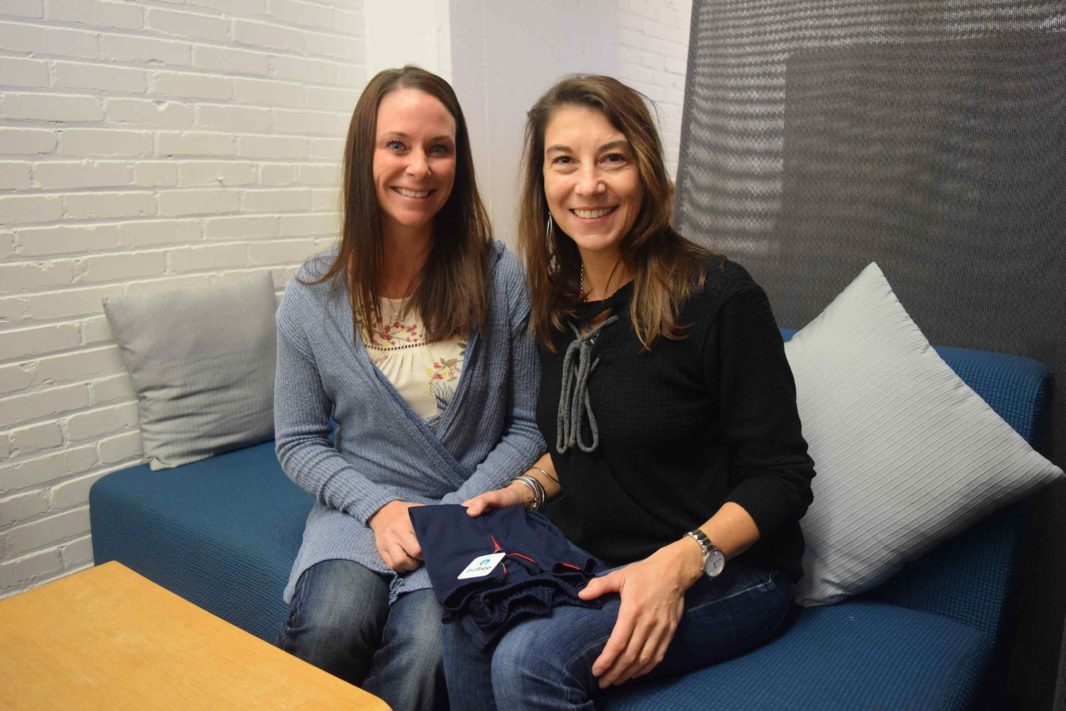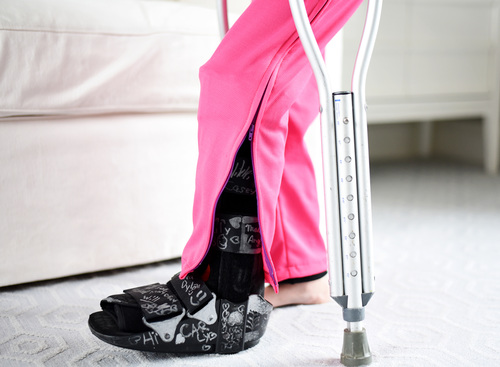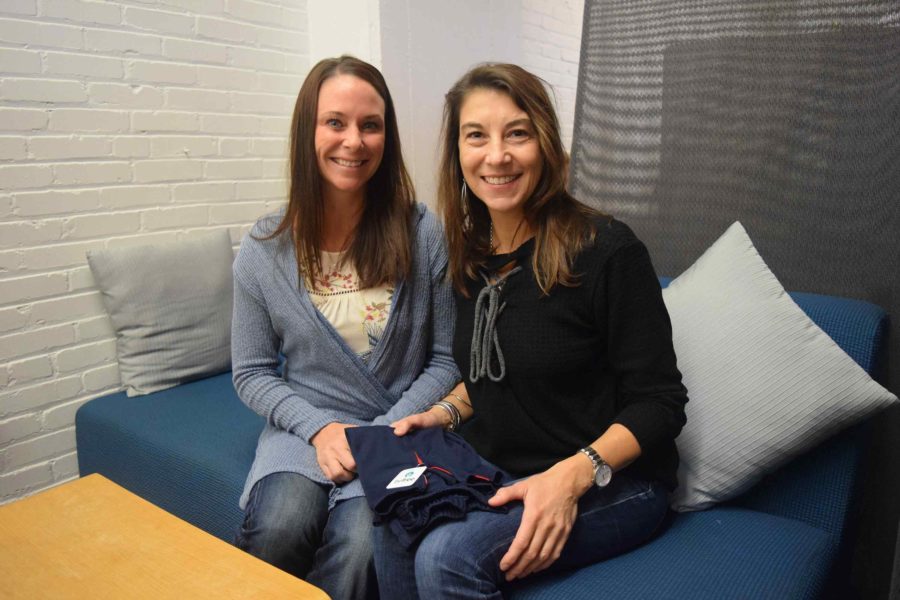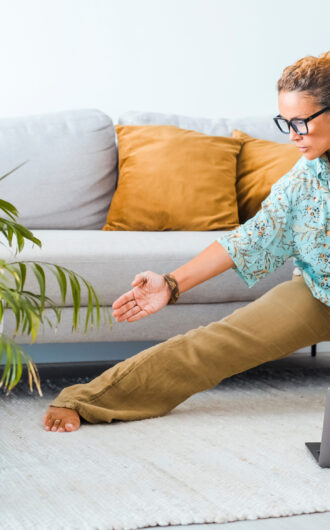
Photo: Karen Morales
Mothers of invention: befree co-founders Nikki Puzzo (left) and Joanne DiCamillo (right) at the MassChallenge Boston offices
Four years ago, when Nikki Puzzo haphazardly cut up a pair of her daughter Stella’s pajama pants and reconstructed them with Velcro on the sides so they could easily be taken on and off over a spica cast, she found it hard to believe that nothing like it was already on the market.
Puzzo was working in biotech at the time, but after Stella’s hip surgeon encouraged the design idea and her friend Joanne DiCamillo agreed to be her business partner, the befree company was born.
DiCamillo, with her marketing background, and Puzzo, with her empathetic insight as a mother of a child who is differently abled, created and trademarked zipOns. The comfortable pants are made with moisture-wicking polyester fabric, an elastic waist, and sides that unzip from waist to hem on both legs. For added comfort, the clothing tag usually found on the inside of the waist was placed on the outside bottom of the pants to prevent irritation.
Out of 1,600 applicants, befree was chosen to join the MassChallenge Boston accelerator program as part of the 2018 cohort. Puzzo and DiCamillo spend time between Boston and Swampscott, from where they both originate, and where they first met when their daughters became friends.

Photo: befree
Zipping around: befree zipOns accommodate people with a temporary or permanent disability

Exhale: Where did the idea for befree zipOns come from?
Nikki Puzzo: Our zipOns were inspired by my daughter Stella, who has spastic diplegia cerebral palsy. Four years ago, when she was five years old, she had hip surgery and had to wear a spica cast. It was difficult to get her in and out of pants, so I originally put something together quickly with cut-up pajama bottoms and Velcro on the sides.
Joanne DiCamillo: We decided to work together when I was visiting Stella at the hospital and thought the pants were a great idea. And Nikki was telling me, “Can you believe there aren’t any pants like this?”

What kind of support did you receive to get the business off the ground?
Puzzo: Stella’s surgeon from her hip surgery gave me the encouragement and inspiration to pursue a business when he saw the pants I made. We also have a connection at Massachusetts General Hospital who works in the innovation department. She has been a big advocate for us and she went down personally to the hospital gift shop to begin those conversations to sell our products there.
DiCamillo: My mom is a seamstress and she helped us out in the beginning by making our prototypes and samples.
Puzzo: And my dad was an early beta tester too. He had surgery in his Achilles [tendon] and was able to use the adult zipOns, which, according to my mother, saved their marriage.
DiCamillo: Being a part of the MassChallenge cohort has been invaluable. We’ve been able to network, and we have a great team of mentors who have helped us with our branding, marketing strategy, and product development.

Who have you been able to provide your products to?
DiCamillo: Currently, befree zipOns are available for purchase at the gift shops at Mass General Hospital and Spaulding Rehabilitation Hospital in Boston. We also just started selling directly to customers through our website and are getting ready to launch a social media ad campaign to further promote that.
We’re in the process of reaching out to medical supply stores to sell there. We’re focusing on local retail first, then branch[ing] out to the rest of the country later.
Puzzo: The product started off as just pants used for post-surgery recovery, but Stella continues to use them to this day; she wears an ankle foot orthosis brace and regularly uses a wheelchair. We want to provide clothes for anyone who has any kind of mobility issue, temporary or otherwise.
We also market to clinicians, health providers, parents, and caregivers.

What challenges have you had to overcome as a start-up?
DiCamillo: Obtaining capital has been our biggest challenge. Also, having to prioritize and get our products in front of the right people like hospitals, patients, and clinicians.
Puzzo: For funding, it’s all about bootstrapping. We’re getting ready to pitch to angel investors within the next two months.
In the beginning, we had some challenges figuring out the minor design details of the pants, like the zipper. Our connection at MGH gave us feedback on the zipper to make sure it doesn’t irritate or pull on the skin or press down on the wearer’s pressure points.
DiCamillo: We also went through several iterations of the product, where we tried using Velcro, then snap buttons, then snap tape, and finally settled on zippers.

What's next for befree?
DiCamillo: So far, clinicians have been receptive to the product. Moving forward, we want to continue to make the clothes feel as normal as any other piece of clothing. So we’re planning to expand to different styles like jeans, dress pants, and leggings.



 4 min read
4 min read






